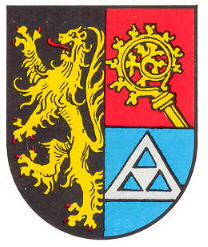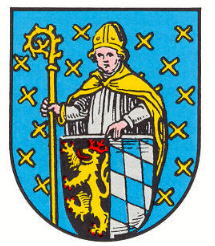Oppau: Difference between revisions
Knorrepoes (talk | contribs) m (Text replace - "Category:Ludwigshafen" to "Category:Rhein-Pfalz-Kreis") |
Knorrepoes (talk | contribs) m (Text replace - "|width="15%"|50 px|right |}" to "|width="15%"|50 px|right |}<seo title="Wappen, Gemeindewappen" />") |
||
| Line 3: | Line 3: | ||
|width="70%" align="center" |'''Heraldry of the World<br/>Civic heraldry of [[Germany]] - [[Deutsche Wappen|Deutsche Wappen (Gemeindewappen/Kreiswappen)]]''' | |width="70%" align="center" |'''Heraldry of the World<br/>Civic heraldry of [[Germany]] - [[Deutsche Wappen|Deutsche Wappen (Gemeindewappen/Kreiswappen)]]''' | ||
|width="15%"|[[File:Germany.jpg|50 px|right]] | |width="15%"|[[File:Germany.jpg|50 px|right]] | ||
|} | |}<seo title="Wappen, Gemeindewappen" /> | ||
'''OPPAU''' | '''OPPAU''' | ||
Revision as of 18:20, 5 November 2012
| Heraldry of the World Civic heraldry of Germany - Deutsche Wappen (Gemeindewappen/Kreiswappen) |
OPPAU
State : Rheinland-Pfalz
Urban district (Stadtkreis) : Ludwigshafen
Additions : 1929 Edigheim
Incorporated into : 1929 Oppau (1938 Ludwigshafen)
Official blazon
Gespalten und links geteilt, rechts in Schwarz ein rotbewehrter und -bezungter goldener Löwe, links oben in Rot ein schräggelegter wachsender goldener Krummstab, links unten in Blau ein durchbrochenes, mit der Spitze nach oben gestelltes und einen mit der Spitze nach unten gestellten silbernen Dreieckstein einschließendes silbernes Dreieck.
Origin/meaning
The arms were granted in July 1929.
The arms show the lion and crosier taken from the old arms, combined with the triangle taken from the old arms of Edigheim.
The previous arms were granted on December 24, 1845.
The arms are based on the historical seal of the village, dating from the 15th century and used until the late 18th century. The arms show the local patron saint, St. Martin, shown in an unusual way (normally he is shown as a knight, cutting his cloak for a beggar), holding a small shield with the arms of Pfalz-Bayern. The crosses probably refer to the diocese of Worms, to which the local church belonged. The village as such was ruled by the Kings of Bayern (diamonds), counts of the Pfalz (lion).
Literature : Debus, 1988.


